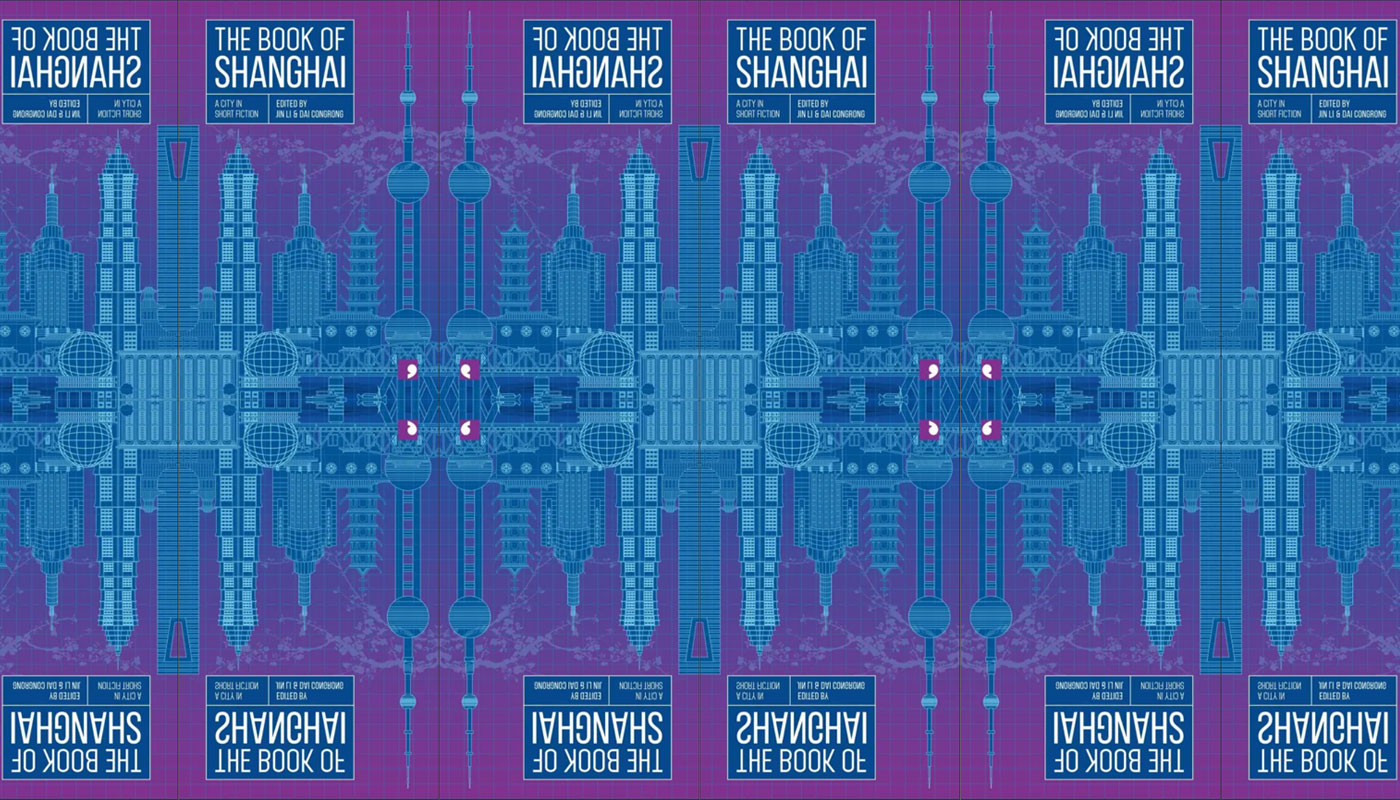Shanghai, a lantern, a promise, the port that is a jewel, a place to trade goods, powerful international infrastructure, “The Paris of the Orient” with a futuristic skyline, the colonial riverfront, the financial hub, an eclectic mix of past and future. Partly controlled by European powers during the 19th century, it is nowadays a cultural, economic and intellectual fusion of many origins.
“As a contact point between East and West, with its unique location, Shanghai paved the way, acting as a testing site where various ideological and cultural ideas were welcomed, accommodated and re-imagined. Among these ingredients was a complex and diverse literary tradition that established Shanghai as, arguably, the literary capital of China.”
—Introduction by editor Jin Li
From the “Reading the City Series” by Comma Press, an interesting approach to travel and literature that avoids following an isolated genre, editors Jin Li and Dai Congrong collect ten short stories to give readers a landscape of the contemporary literary talent of the city. I have the pleasure of giving you a brief tour of the stories within. Get ready to know Shanghai through its people, futuristic scenery and social inequality; some of these stories might not be like anything you’ve read before.
The first short story by Wang Anyi “Ah Fang’s Lamp” is a simple narrative about the observation of other people’s lives, especially the ones usually ignored, such as the girl working at a tiny fruit stall beneath a window. Set in the city where all the doors look the same, where when they’re shut, you can’t tell whose is whose, it is a tale about being invisible yet existing. It is a reflection about how the simple life can be the most rewarding, but with a twist, since while this reflection is based on wisdom and an understanding of what really matters, the main character is using these observations to satisfy her own entertainment, fulfilling her own curiosity as an outsider who will never actually live these lives.
The next story by Chen Danyan is about having a domestic fight on a New Year’s morning, reminding us how the pressure for everything to go well can make everything fall apart. The family tension from traditional festivities is something that crosses continents and cultures.
Xia Shang introduces a very interesting point about a specific facet of Chinese culture, the notion of “losing face” through a fight between parents and sons.
Then Teng Xiaolan’s “Woman Dancing Under Stars” feels kind of alien in the midst of these other great works. What starts as an interesting relationship between a younger woman and an older woman, who seems unusually progressive and open minded, ends up coming to the conclusion that the old woman is just “slutty” (that’s the actual term that is used by the young woman’s husband). After finding out that her husband is cheating on her with someone who actually looks “slutty” (again, quoting), she dwells on the possibility that probably men actually like that “type”. In the end, all that the young woman learns from the older lady is that facing this situation a woman should just smile and carry on until she has a kid and a nice house.
Fortunately after such an uninteresting and poor work, we come across something dignified. The young Shen Dacheng (whose biography is very hard to find on Google because it’s the name of a famous restaurant in Shanghai and I guess that’s hipster and ironic), is a promising writer. My personal favorite piece of fiction in the book, “The Novelist in the Attic” is beautifully crafted. With relatable characters and a hypnagogic conceptual ending featuring an author who can’t write so he kills all of his notions of self which become the actual corpses of workers in a publishing house, it is a masterpiece of meta-narrative and reflection on the writing industry. So, here I could breathe again and forget about the slutty ladies and return to real literature which, to my relief, continues for the rest of the book.
Moving on to “The Story of Ah-Ming”, the literary quality solidifies. Ah-Ming is an old lady who lives in a locked garage:
“It’s generally the same kinds of people who root around in bins. There’s the tramp, who is hungry and thirsty and game for whatever he can dig up. There’s the migrant worker, a guy with nothing to his name, always scanning for something useful like a dumped sofa or an old pair of trainers. And then there are elderly ladies from the neighbourhood, like Ah-Ming, who collect bottles and cans along the road and trade them for a bit of cash. No-one had ever been as obsessive about the bins as Ah-Ming, though.” (p. 81)
Ah-Ming could be on some TLC show about people who collect trash as a way of filling something essential in their perception of their own ego. While the story gives a foreigner an idea of how trash collection works in China, it also explores the psychological essence of an old lady abandoned by her son with nothing left to form an identity for herself.
Fu Yuehui tells us a story about losing a phone in China. Oh yes, those of you living in China right now, you know what I’m talking about. What ever will you do if you loose something as precious as your phone. So the experience of the main character in this one is very similar to my experience when I can’t access Facebook for a few days and I think that I’m missing out and everyone is worried, but then when I get back on it I only get stupid useless notifications and I realize that I actually could have been living without it all along. Very contemporary, humorous and a great read.
Then we pass through “Transparency” by Xiao Bai, learning a little more about the modern couple’s struggle to adjust to each other in a world of utilitarianism and a need to work and forget to live. A life that is beautiful but unbearable.
The editors provide a perfect summary of the next story: “As Shanghai succumbs to a seemingly apocalyptic deluge, a man takes refuge in his bathtub, only to find himself, moments later, floating through the city’s streets”. This is Cai Jun’s “Suzhou river”—a pleasant read an excellent example of Chinese contemporary literature.
The last short story is by Chen Qiufan. It’s the end of the world and one man needs to return his copy of Brain Entropy: A Theory of Neurocognition to the library. The reader is swept off her feet in a dystopian world of scientific and literary references, with witty playfulness:
“A gigantic exhibition hall for materialism, in every detail revealing humanity’s self-regarding nature, you tread on the shards of glass and look across the six-story space, lifting up like a spaceship toward the universe, gazing deeply back at you like a black hole, while the ambient tracks of the shops intertwine in your memory, looping over and over again, like someone calling your name.
Yet you can’t remember your name.” (p. 149)
Undoubtedly, the best way to end this collection.
Apart from Wang Ayi, best known for The Song of Everlasting Sorrow, and Chen Qiufan, whose science fiction books are widely known and awarded in China, I would say that The Book of Shanghai does well at capturing Shanghai’s upcoming talent. The new trend of blending a certain amount of realistic detail with magic elements is for sure the Chinese answer to the typical genre of magical realism. It’s not surprising at all that someone living in contemporary Shanghai would like to portray reality as a dreamlike flow of experiences. In that sense, literature exists to depict existence as deeply intertwined with its environment but always mindful that the scenery outside is just a consequence of the intimate states of mind we hold within.


Sara F. Costa is a Portuguese poet. She has published five poetry collections that won several literary prizes in Portugal. She has an MA in Intercultural Studies: Portuguese/Chinese from Tianjin Foreign Studies University. Her verses have been translated into several languages and featured in literary journals across the world. As an emerging European poet, she was an invited author of the International Istanbul Poetry Festival 2017. In 2018, Sara worked in the organization of The Script Road-Macau Literary Festival and China-European Union Literary Festival in Shanghai and Suzhou. She translates Chinese poetry into Portuguese and is currently living in Beijing coordinating events for the Spittoon Beijing-based arts collective. She also hosts the bi-weekly Spittoon Poetry Workshop.
